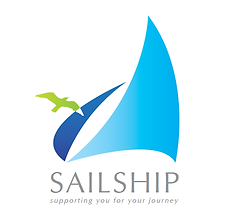

Welcome to Sailship Training & Learning for Life, a transformative charity based in Clacton-on-Sea, championing health and wellbeing across all ages. Through therapeutic gardening, inclusive life skills training, and dementia-friendly environments, Sailship provides person-centred pathways for mental health recovery, personal growth, and social connection. With a focus on individuals with learning disabilities and the wider community, Sailship empowers participants to heal, flourish, and lead purposeful lives - growing a friendship between people, place, and possibility.
Social & Therapeutic Pathways
Introduction to the Programmes
SOCIAL AND THERAPEUTIC HORTICULTURE
This pathway focuses on the benefits of horticulture and gardening for vulnerable or socially excluded adults, including for example, those with learning difficulties, mental health support needs and substance abuse recovery clients.
Sailship staffs are trained and certified in the practice of STH with Thrive (www.thrive.org.uk).
Participants will take part in a range of activities including;
-
Planting
-
Cultivating
-
Harvesting
-
Digging
-
Constructing etc.
They will also benefit from social opportunities – STH (Social and Therapeutic Horticulture) helps to develop closer relationships between vulnerable (socially excluded) and non – vulnerable (socially included) people in our local community as the allotments are shared by all.
Education, training and activities such as marketing and selling produce, providing participants with activities in a structured format that resembles ‘employment’ will be offered by a fully trained horticulturalist and a number of Support Staff also trained in STH practice.
Participants will work to an individual support and learning plan and will be offered opportunities to work in a team, or on their own, without the pressure normally associated with employment. This can help to promote a sense of identity and status among participants and helps to build self-esteem and confidence. Our trained staffs play an important part in helping to boost participants’ self-confidence in a number of ways, for example, increasing their level of responsibility, facilitating their work to ensure that trainees succeed, demonstrating that major tasks are achievable and teaching new skills. The confidence gained through the acquisition of skills and knowledge can also have a positive effect on participants’ relationships with their families and friends.
Opportunities for self-reflection, relaxation and restoration, as well as increased access to growing things, nature, being outside and the peace of the natural environment are all important aspects of STH. The natural environment can also be restorative in that it may be fascinating and relaxing whilst it therefore promotes general feelings of well-being.
This programme also offers participants the opportunity to engage in a regular, structured form of outdoor physical activity. Many of the tasks, such as digging or hard landscaping, require substantial effort, but for many this activity can also make them feel better, both physically and psychologically. This may be especially valuable to groups such as those with learning difficulties or mental health problems, who can be at greater risk of developing serious illnesses, such as cardiovascular disease, which may be prevented or attenuated by higher levels of physical activity.
STH promotes social inclusion and is a useful and effective form of health and social care provision. STH can also provide a break for participants from the usual routine in day-care facilities. Further reading: www.thrive.org.uk
SOCIAL AND THERAPEUTIC PATHWAYS
Following INITIAL ASSESSMENT to determine participant’s pathway and completion of an individual Support and learning plan, to include goal setting and expectations, participants following the Social and Therapeutic Pathway can be placed in one or more of three areas. Each can be interchangeable and may lead on to the vocational ASDAN course, or towards/into employment or volunteering opportunities. For some, it may lead back into work, following a break due to illness such as stroke, cardiovascular problems or mental ill health. Participants who choose STH may also choose to work within other Enterprises alongside their STH programme that will compliment it e.g. Kitchen Crafts, Willow Crafting, Heavy crafts.
NB STH is not an alternative therapy and is not intended to replace clinical treatment. Rather we aim to work with clinicians and qualified medical personnel who may refer clients to the project.
STH PROGRAMMES MODEL
PROGRAMME TYPE
-
Vocational
-
Therapeutic
-
Social
MODEL
-
Rehabilitation
-
Medical
-
Wellness
GOAL
-
Employment/Volunteering
-
Recovery
-
Self-esteem
PROGRESSION
There are three possibilities for progression:
Participants who embark on the STH Programme may wish to progress to the ASDAN Employability Course, if deemed suitable following success on this programme.
Participants who embark on the STH Programme and who demonstrate positive outcomes (as detailed in the programme details above) may wish to move into supported employment/volunteering
Participants who embark on the STH Programme and who demonstrate positive outcomes (as detailed in the programme details above) may wish to return to employment if they have had a break due to mental ill health/acquired brain injury, adjustment to physical disability, etc.
For some trainees, who may not be able to work towards work, the appropriate route will be supported, vocational, meaningful activity based day care, based within the Sailship TLL enterprises as an ongoing contact between the trainee and the project.